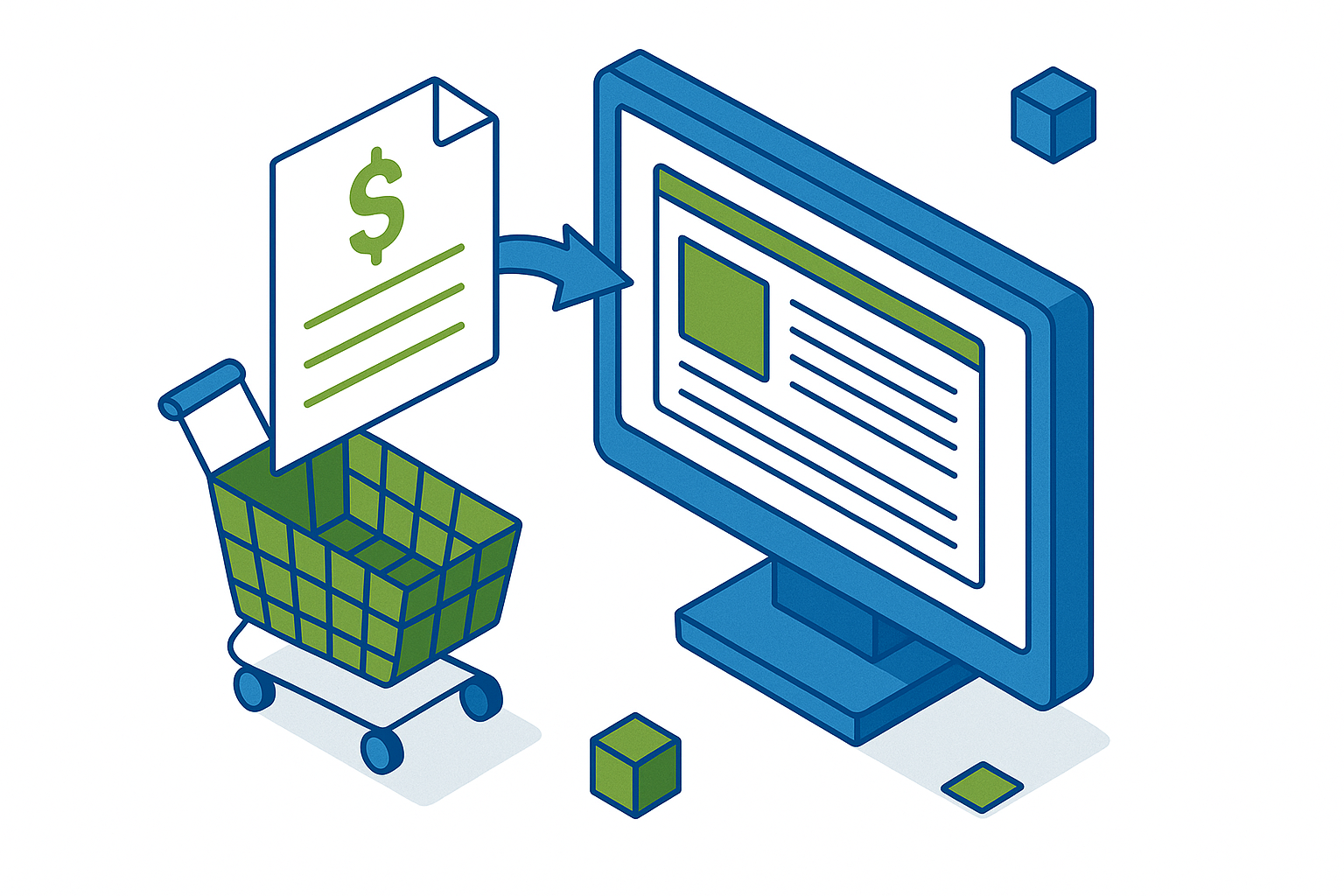2 min read
Universal Analytics to Google Analytics 4: What Does it Mean?
By now, you are most likely aware that Google is implementing a major shift in Google Analytics. Effective July 1, 2023, all data and processing in...

If you’re still paying for “ready-to-publish” articles to post on your firm’s website, you’re wasting money.
That statement may sound harsh, but it’s true. The once-convenient model of buying pre-written blog posts, tax updates, or industry explainers from content vendors has quietly lost all effectiveness. Search engines and AI platforms have caught on, and what used to feel like an efficient marketing shortcut is now an invisible sinkhole: it doesn’t build authority, it doesn’t drive leads, and it doesn’t differentiate your firm.
For professional service leaders who expect measurable returns from every investment, this is the new reality: purchased content doesn’t work anymore.
Let’s start with what’s really happening.
For years, companies like Thomson Reuters Checkpoint Marketing for Firms, Marketing by Numbers, and CPA Site Solutions have offered libraries of articles, newsletters, and videos you can brand as your own. Hundreds of accounting, legal, and financial advisory firms use these same libraries.
On the surface, it sounds practical: professionally written content without the hassle of writing it yourself. But here’s the problem: you’re not the only one using it. When the same article appears on dozens (or hundreds) of firm websites, it stops being “your content.” It becomes noise.
Search engines don’t see that article as yours. They see it as duplicate content: the same material repeated across multiple sites. And duplicate content doesn’t help you rank. In fact, it often erases your visibility altogether.
In a digital environment where differentiation and authority drive visibility, mass-produced content is the exact opposite of what your firm needs.
Here’s what’s going on under the hood.
When Google encounters the same article across multiple domains, it doesn’t “penalize” you in the old-fashioned sense. It simply decides which version is the most authoritative and then ignores the rest.
That process is called canonicalization. In practice, it means Google consolidates all ranking signals toward one “canonical” version and hides duplicates from search results. So if your firm’s “Tax Planning Tips for 2025” post is identical to 80 others, there’s a 98% chance your version won’t appear at all.
Artificial intelligence systems like Google’s AI Overviews, Perplexity, and ChatGPT’s search integrations follow the same logic. They quote and link to original sources, not replicas. When everyone posts the same article, these systems have no reason to choose yours.
Put simply: you don’t get penalized, you just get ignored.
Search engines and AI platforms have no use for redundant content. They’re designed to reward unique expertise, real experience, and clear authority. Purchased content checks none of those boxes.
Let’s put this in financial terms — because this is where it really hurts.
Lost visibility equals lost opportunity. When your content doesn’t rank, it doesn’t drive organic traffic, which means fewer inbound leads, fewer discovery calls, and fewer prospects.
Brand dilution is another casualty. If a prospective client researches three accounting firms and sees the same blog article on each site, it undermines credibility. Instead of standing out, your firm blends into the background.
Then there’s the AI effect. AI Overviews and search assistants are rewriting how clients discover and vet firms. They’re surfacing firms that produce original thought leadership, not regurgitated copy. If your content mirrors everyone else’s, you’ll never be referenced, cited, or quoted.
When you total the bill, “cheap” content turns out to be very expensive.
To understand why this happens, you don’t need to be an SEO expert. You just need to understand how Google thinks.
Search engines reward content that’s helpful, original, and trustworthy. AI systems go a step further, looking for evidence of experience — the “E” in Google’s E-E-A-T framework: Experience, Expertise, Authority, and Trust.
Here’s how they process syndicated or shared content:
Modern search and AI don’t need more of the same; they need signals of genuine thought leadership. In that environment, cookie-cutter content doesn’t just fail to help, it actively holds you back.
Some marketing providers suggest “customizing” or “rewriting” purchased content to make it unique. That sounds good on paper, until you realize what that really means: you’re doing the work you paid someone else to do.
If you’re investing time and resources to rewrite syndicated material, why buy it in the first place?
Let’s be direct: by the time your team edits for accuracy, updates language, adds firm insights, and aligns the tone to your brand, you’ve spent nearly the same effort as creating original content, but without the long-term upside of true ownership.
Instead of starting from generic material, build content that actually reflects your firm’s value:
The point isn’t to produce more content. It’s to produce meaningful content that only your firm could write.
You can’t outsource authenticity. And you certainly can’t buy it.
Buying content might once have been a shortcut, but now it’s a dead end.
You can’t build authority on borrowed words. You can’t lead with content that anyone else can purchase. And you can’t expect clients to trust insights that clearly aren’t yours.
If your firm’s website reads like everyone else’s, it’s not marketing, it’s camouflage.
The firms that will win in this next era of digital visibility are the ones that treat their expertise as an asset worth amplifying. Originality isn’t a luxury; it’s a competitive advantage.
Stop renting your reputation. Start investing in thought leadership that reflects who you are, what you know, and why it matters.
Does duplicate content hurt SEO?
Not with penalties, but your version will almost never rank. Search engines pick one version and ignore the rest.
Can I still use purchased content?
Only as a rough draft. You’ll need to substantially rewrite it to reflect your firm’s expertise and voice.
How does AI decide what to show in search results?
AI systems prioritize unique, credible, experience-driven content with clear authorship and structure.
What type of content drives growth for professional services firms?
Original thought leadership: articles, guides, and commentary that reflect your direct experience and insights.
The Hollinden Point of View brings you monthly insights tailored to helping you grow your firm.

2 min read
By now, you are most likely aware that Google is implementing a major shift in Google Analytics. Effective July 1, 2023, all data and processing in...
A highly successful inbound marketing program requires the right blend of technology and strategy.

Marketing and sales teams have historically operated on separate wavelengths—and, in some organizations, separate universes. The disconnect between...